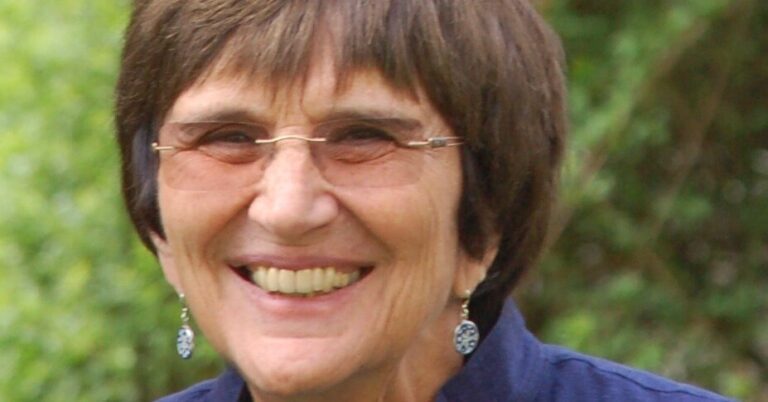
Sandra Trehub, a psychologist and researcher whose work helped illuminate how children perceive sound, and how lullabies and music fit into their cognitive and social development, died on Jan. 20 at her home in Toronto. She was 84.
The death was confirmed by her son Andrew Cohen.
Over a half-century as a psychologist at the University of Toronto, where she began working in 1973, Dr. Trehub produced seminal work in the field that is now known as the psychology of music.
“Back then, there were very few people in psychology and neuroscience who were studying music at all as a human behavior,” Laurel Trainor, a psychologist at McMaster University in Hamilton, Ontario, said in a phone interview. “Sandra said, look, music is universal, we spend a lot of time and energy on music — what is its purpose? Why do we do this?”
Dr. Trehub’s research found that there are indeed universally shared responses to music among infants, beginning with sing-song-y baby talk by parents across different cultures.
She found that infants prefer certain melodic intervals over others and can grasp the contour and shape of a lullaby. She further established that infants and toddlers can — better than adults — notice differences in some elements of music from other countries and cultures, both tonal and rhythmic. That finding suggested that as people get older, their ability to distinguish discrepancies in unfamiliar music decreases while their ability to notice nuance in familiar music increases.
“Sandra was the first psychologist to study musical abilities for their own sake in infants,” Isabelle Peretz, a neuroscientist at the University of Montreal, wrote in an email. Before Dr. Trehub, she added, many researchers thought “that musicality was a pure cultural product which was acquired and possessed by a few select people: the musicians.”
It is now widely accepted that music is an important developmental tool for everyone, starting in infancy, and that musical fluency among parents can deeply affect their children’s long-term health and mental development.
“Her work helps to legitimize early childhood music education, which basically didn’t exist before the 1980s,” Samuel Mehr, a psychologist at the University of Auckland in New Zealand and director of the Music Lab at Haskins Laboratories, Yale University, said by email.
Dr. Trehub’s findings might seem intuitive or even obvious now, he added, but that only highlights the importance of her work. “Every bit of research in the psychology of music over the past 40 years can be traced back to Sandra Trehub,” he said.
Sandra Edythe Trehub was born on May 21, 1938, in Montreal. She earned her bachelor’s degree in economics at McGill University in Montreal in 1959 and her master’s in psychology there in 1971.
After completing her doctorate, also at McGill, she began her career as an assistant professor of psychology at the University of Toronto. Some of her earliest work showed how infants as young as one month old could distinguish between speech sounds; in a paper, she wrote that babies would increase their “sucking rate” on an artificial nipple when new vowels were introduced.
Using the same methodology, Dr. Trehub went on to show in another paper how babies can distinguish between sounds in some foreign languages better than adults. That finding, said Janet Werker, a psychologist at the University of British Columbia, provided the groundwork for a large body of subsequent research demonstrating that babies are born with the ability to pick up on the basic acoustics of any of the world’s languages. The research has served to heighten the importance of early exposure to foreign languages, with continuing ramifications in education.
As Dr. Trehub earned tenure at the University of Toronto, her work shifted from speech to music. She published prolifically in journals, including two influential papers in 1977. One showed that the heart rates of five-month-old infants changed when exposed to different rhythms. The other showed that infants can sense the relationships between notes — they can tell when the same melody is transposed to a different key. Dr. Trehub’s research was inspired in part by her own love of music; two of her favorite singers were Leonard Cohen and David Bowie.
Dr. Trehub’s marriage to Norman Cohen in 1957 ended in divorce in 1968. She married Ronald Matthews in 1970; he died in 2007. In addition to her son Andrew, she is survived by two more children, Dana and Ira Cohen; her sisters, Estelle Ebert and Maxine Seidman; 18 grandchildren; and two great-grandchildren.
She also leaves an intellectual lineage of psychologists who studied with her and went on to head some of the most active psychology of music labs in the world.
Dr. Trainor, one of Dr. Trehub’s early graduate students, remembered going to talks on the psychology of music in the 1980s and ’90s with little more than 10 people in the audience. Now there are conferences with thousands of researchers.
“Part of that is a testament to Sandra, and the quality of her work — she couldn’t be ignored,” said Dr. Trainor.
Glenn Schellenberg, a psychologist at the University of Toronto who wrote more than 30 articles with Dr. Trehub, agreed. “She was like Joni Mitchell,” he said by phone. “In the end, she really got every credit that she deserved.”